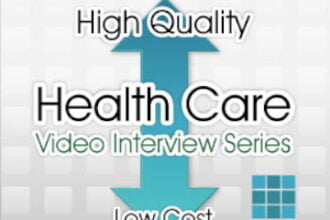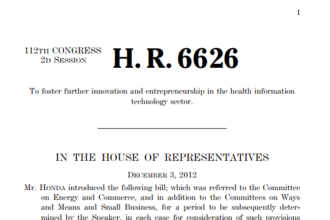Before blundering blindly ahead and reading yet another post of mine, take this ‘pre-reading’ quiz, the kind that are all the rage for elementary school students to take before reading, for–here’s my fancy teacher lingo–activating prior knowledge and helping establish a schema for reading (like it?).
It’s a one question quiz, and here’s the thing–you can’t get it wrong.
Before blundering blindly ahead and reading yet another post of mine, take this ‘pre-reading’ quiz, the kind that are all the rage for elementary school students to take before reading, for–here’s my fancy teacher lingo–activating prior knowledge and helping establish a schema for reading (like it?).
It’s a one question quiz, and here’s the thing–you can’t get it wrong.
Point well-made, right? [You DID answer ‘see a psychiatrist,’ right??]
So I write this piece with the full understanding that an app does not replace a professional opinion, and the iTunes store is not an alternative to the doctor’s office for receiving a diagnosis.
That having been said, several of the apps that assess depression use standard diagnostic scales in use in physician’s offices around the country–and even the world. So these may be handy for the diagnostician–and may even be a way for the depressed person to validate to him or herself that her condition is serious enough to warrant further examination. For those reasons alone (and throw in that they’re almost all free) it’s enough to take a quick look at the apps that screen for depression.
Depression Check/WhatsMyM3
If you’re used to apps that import feeds and create graphics, this app–like all the depression screening apps–seems pretty bare bones, but a study led by University of North Carolina at Chapel Hill researchers concludes that the 27-item questionnaire that makes up My Mood Monitor (the M3) is an effective screening tool for four psychiatric illnesses, depression included.
The checklist was developed by M-3 Information of Bethesda, MD, and is available free online at http://www.whatsmym3.com, if you’re not about to go the app-route.
The main article assessing the validity of the tool has the rather burdensome name of “Feasibility and Diagnostic Validity of the M-3 Checlist: A Brief, Self-Rated Screen for Depression, Bipolar, Anxiety, and Post-Traumatic Stress Disorders in Primary Care,” and you should feel free to read it at your non-depressed leisure–it’s available from the app itself, as well–but to cut to the chase the article concludes,
“M-3 demonstrates utility as a valid, efficient, and feasible tool for screening multiple common psychiatric illnesses. . . Its diagnostic accuracy equals that of currently used single-disorder screens. . . . The M-3 potentially can reduce missed psychiatric diagnoses and facilitate proper treatment of identified cases.”
It’s probably about as good as you’re going to get in one of these quickie checklists, which is pretty much what all the depression rating apps are going to utilize.
The premium edition of the app, called “WhatsMyM3,” which costs $2.99 and is also available on Android, lets you save your score so you can monitor your progress over time, a useful diagnostic resource you have no access to on the website or on the free version. Everything else on WhatsMyM3 comes as well with the free edition, called ‘Depression Check.’
The app warns, as they all do, that “this is not a diagnostic instrument and it is only to be used as an adjunct to ongoing health care.” [This brings me back to the quiz–if you’re really feeling low, and that something’s not right, fiddling around with apps is playing with your health in a dangerous way.]
 The questions or statements are fairly standard (“I feel sad, down in the dumps, or unhappy,” “I feel tired; have no energy”) and you pick from ‘Not at all,’ ‘Rarely,’ ‘Sometimes,’ ‘Often’ or ‘Most of the time.’
The questions or statements are fairly standard (“I feel sad, down in the dumps, or unhappy,” “I feel tired; have no energy”) and you pick from ‘Not at all,’ ‘Rarely,’ ‘Sometimes,’ ‘Often’ or ‘Most of the time.’
At the end you get you score on a scale of 0 to 108, along with the information that ‘Scores of 33 or greater mean that you life may be impacted by a mood disorder,’ and you get a breakdown of the four disorders the app assesses for–depression, anxiety, PTSD, and bipolar–and how likely it is that you’re suffering from any of them.
But then–and this is true even on the free version, so the developers really went all out–you get some ‘Helpful Links:’ to the “What my M3?” site, to the home pages of the National Institute of Mental Health and Mayo Clinic, to the ‘Live Your Life Well’ page of Mental Health America, and a link to the National Suicide Prevention Lifeline. [Yes, I’ve provided you with all of the links right here, and saved your thumbs some work on the iPhone, should you get that far.]
My final verdict: it isn’t bad. It’s got a proven screen and some helpful links. And saving your scores over time [that’s if you shell out the big bucks] is helpful.
Let’s speed this up a bit, though, while we take a look at. . .
Depression Test and Tracker. . .
which, in interests of full disclosure, does cost $1.99.
This one uses the Goldberg Depression Scale, which you can find here, if you’re appped out.
This one’s more a measure of change in depressive symptoms. You should take it once a week, and the app calculates your results, with 54 and up indicating severe depression, 36-53 moderate. . .you get the picture. A change of 5 points or more over a week is considered significant.
A nice feature, like the one on the premium WhatsMyM3, is that the app stores your results, letting you track your mood, which might indicate if the situation is getting more serious (and you’re finally ready to get yourself to a doctor).
An additional feature that I wish the WhatsMyM3 would have is the capacity to e-mail your results to others, or to your own computer.
Overall the scale is somewhat less reliable than that of the first app–but the features are slightly superior (the butterflies drag it down another notch, though, don’t you think?).
Alright–next?
How about the. . . .
STAT Depression Screening PHQ-9?
Proving that you don’t always get what you pay for (healthcare in America, anyone?), this app is superior to the other two, for free.
 Clearly it uses the PHQ-9 as a screening tool, which has it all over the Goldberg Depression Scale in terms of reliability, if you ask me. It’s a 9-item (you guessed, right?) depression scale of the Patient Health Questionnaire and is meant to assist primary care physicians in diagnosing depression and choosing and monitoring treatment. Unlike the other two scales, the PHQ-9 is based completely on the criteria for major depressive order from the Diagnostic and Statistical Manual of Mental Disorders-IV, which is basically the diagnostic Bible.
Clearly it uses the PHQ-9 as a screening tool, which has it all over the Goldberg Depression Scale in terms of reliability, if you ask me. It’s a 9-item (you guessed, right?) depression scale of the Patient Health Questionnaire and is meant to assist primary care physicians in diagnosing depression and choosing and monitoring treatment. Unlike the other two scales, the PHQ-9 is based completely on the criteria for major depressive order from the Diagnostic and Statistical Manual of Mental Disorders-IV, which is basically the diagnostic Bible.
You can take a look at the questions and response choices in this sample questionnaire, in case you like to know what you’re getting into before you leap to download.
![]() Beyond the questions, the app has a nice duo of sections, ‘Initial Treatment Selection’ followed by ‘Assess Response to Treatment.’
Beyond the questions, the app has a nice duo of sections, ‘Initial Treatment Selection’ followed by ‘Assess Response to Treatment.’
Based on your Severity Score on the PHQ-9 you get a Provisional Diagnosis under the Initial Treatment Section: perhaps dysthymia, or a major depression, followed by treatment recommendations, which range from ‘support, watchful waiting,’ to ‘antidepressant or psychological counseling.’
Passing through that to the Assess Response to Treatment section you receive some basic information about treatment response, including (very basic) suggestions of what to do if remission isn’t achieved after two antidepressant trials and/or psychological counseling by 20 or 30 weeks.
Almost tragically, really, that basic information consists of telling you that you that, if you’ve gone this far with no relief, you “would benefit from a formal or informal psychiatric consultation for diagnostic and management suggestions.” [See my quiz–if you or your doctor haven’t thought of this by 30 weeks into your depression, someone is really to blame.]
Although here you can’t store results, which would be helpful, you can e-mail them–to yourself or your provider.
Then, when you’ve completed all the prior sections, in what I consider a truly bizarre state of affairs, the app offers you to “upgrade” (for real) to the Bipolar MDQ app. I don’t know why a bipolar app is an upgrade from a depression one, but when I find out I promise to share it with you.
Well, that’s enough for any human, depressed or joyful, to read on this topic for one day. I’ll return to finish up with two or three depression screening apps you surely wouldn’t want to miss, as a diagnostician or a self-rater.
Unless, if you’re the latter, you might think of getting yourself to the doctor. That absolves you from having to read Part II.
Related articles
- How To Test For Depression (answers.com)
- The WhatsMyM3 App Screens for Mental Disorders (washingtonian.com)
Filed under: Candida Abrahamson PhD, Depression, Living With Mood Disorders, Mental Health Tagged: apps for depression, depression scales, depression screen, Depression test and tracker, STAT depression screening, Whatsmym3 ![]()










